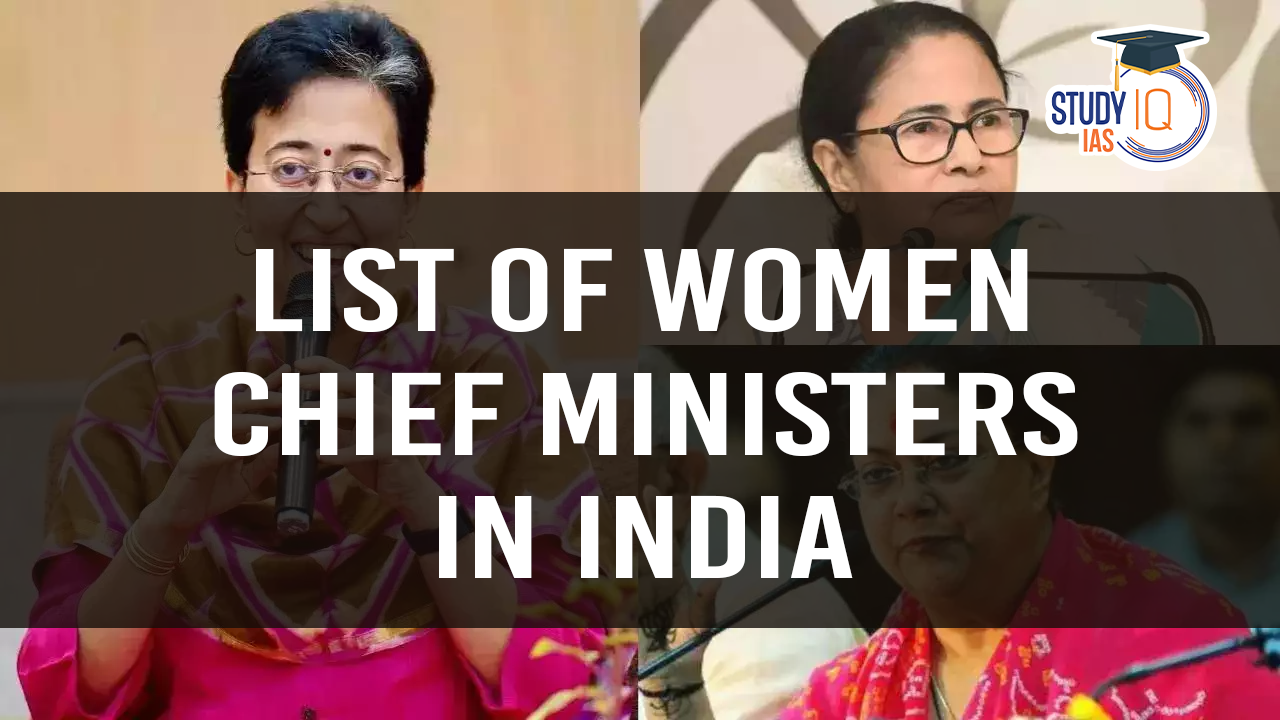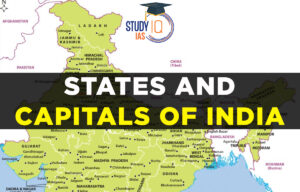Table of Contents
India has witnessed several strong and influential women leaders who have served as Chief Ministers across various states. These women have played a crucial role in shaping governance, promoting social welfare, and leading significant reforms. Their leadership has inspired future generations and highlighted the progress toward gender equality in Indian politics.
In this article, we provide a comprehensive list of women Chief Ministers in India, along with their respective states and tenure periods.
Women in Indian Politics
Women have gradually broken the barriers in Indian politics, proving their capabilities as administrators and reformers. Leaders such as Sucheta Kriplani, Jayalalithaa, Mamata Banerjee, Mayawati, and Rekha Gupta have made remarkable contributions to their states’ development. Their policies have focused on education, women empowerment, rural development, public health, and economic growth.
First Woman Chief Minister of India
The first woman to become a Chief Minister in India was Sucheta Kriplani, who took charge of Uttar Pradesh on October 2, 1963. She was known for her determination, strong leadership, and ability to handle administrative challenges during her tenure.
Complete List of Women Chief Ministers in Indian History
Here is a detailed list of all women Chief Ministers in India, along with the states they governed and their tenure periods:
| Name | State | From | To |
|---|---|---|---|
| Sucheta Kriplani | Uttar Pradesh | October 2, 1963 | March 14, 1967 |
| Nandini Satpathy | Odisha | March 14, 1973 | September 1, 1977 |
| Shashikala Kakodkar | Goa | August 1973 | April 1979 |
| Anwara Taimur | Assam | December 1980 | June 1981 |
| Janaki Ramachandran | Tamil Nadu | January 7, 1988 | January 30, 1988 |
| J. Jayalalithaa | Tamil Nadu | May 14, 1991 | May 15, 1996 |
| May 2001 | September 20, 2001 | ||
| May 23, 2015 | December 5, 2016 | ||
| Mayawati | Uttar Pradesh | June 3, 1995 | October 18, 1995 |
| May 2007 | March 15, 2021 | ||
| Rajinder Kaur Bhattal | Punjab | February 1997 | May 1997 |
| Rabri Devi | Bihar | July 1997 | February 1999 |
| Sushma Swaraj | Delhi | October 1998 | February 1999 |
| Sheila Dikshit | Delhi | December 1998 | December 2013 |
| Uma Bharti | Madhya Pradesh | November 2003 | August 2004 |
| Vasundhara Raje | Rajasthan | December 2003 | December 2008 |
| December 2013 | January 2018 | ||
| Anandiben Patel | Gujarat | May 2014 | August 2016 |
| Mehbooba Mufti | Jammu & Kashmir | April 4, 2016 | June 19, 2018 |
| Mamata Banerjee | West Bengal | May 20, 2011 | Present |
| Atishi (Interim CM) | Delhi | February 2025 | February 2025 |
| Rekha Gupta | Delhi | February 20, 2025 | Present |
Women Leaders Who Transformed Indian States
Many women Chief Ministers have left a lasting impact on their respective states. Here are a few notable ones:
1. J. Jayalalithaa (Tamil Nadu)
Jayalalithaa was one of the most powerful and influential politicians in Tamil Nadu. She introduced several welfare schemes, including Amma Canteens, free laptops for students, and financial assistance to women. Her leadership was characterized by strong governance and populist policies.
2. Mamata Banerjee (West Bengal)
Mamata Banerjee, the first woman Chief Minister of West Bengal, is known for her pro-people policies, rural development initiatives, and reforms in education and healthcare. She has been in power since 2011 and remains a dominant force in Bengal politics.
3. Mayawati (Uttar Pradesh)
Mayawati served multiple terms as the Chief Minister of Uttar Pradesh. She worked for the upliftment of Dalits and backward classes and focused on infrastructure development, including roads, parks, and government buildings.
4. Sheila Dikshit (Delhi)
Sheila Dikshit was the longest-serving Chief Minister of Delhi (1998-2013). She played a crucial role in modernizing Delhi, improving public transport (Delhi Metro), and implementing developmental projects.
5. Vasundhara Raje (Rajasthan)
Vasundhara Raje was the first woman Chief Minister of Rajasthan. She focused on women empowerment, economic reforms, and infrastructure development during her tenure.
Conclusion
The rise of women in Indian politics is a testament to the country’s progress toward gender equality. The contributions of women Chief Ministers have significantly impacted governance, public welfare, and social reforms. With increasing female representation in politics, India continues to witness the emergence of strong women leaders who inspire future generations.
Women leaders like Mamata Banerjee, Mayawati, Jayalalithaa, and Rekha Gupta have shown that leadership is not limited by gender. Their policies, governance style, and ability to bring change continue to shape India’s political landscape.


 World Veterinary Day 2025: Theme, Histor...
World Veterinary Day 2025: Theme, Histor...
 List of States and Capitals of India, Ma...
List of States and Capitals of India, Ma...
 World Intellectual Property Day 2025, Th...
World Intellectual Property Day 2025, Th...





















